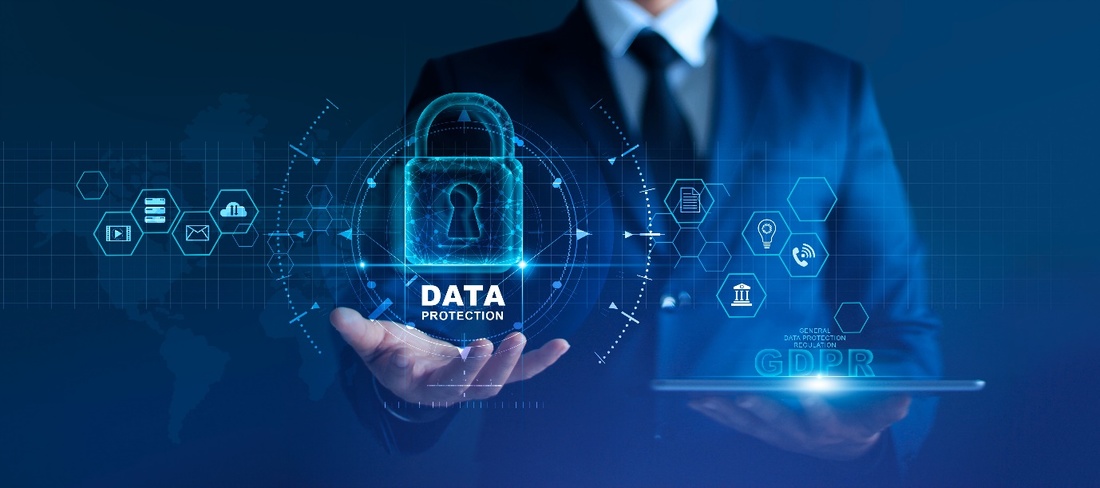
Professionals around the globe will observe Information Privacy Day. This season, we chose to mark the event by amassing our team's ideas and expectations about what we anticipate to be the largest privacy law tales from 2021 and beyond.
This past year we wrote a similar post, Trying to forecast how the solitude landscape would However, let us be fair, in March everything changed, such as privacy law. As spring turned to summer our writing concentrated on the privacy legislation consequences of COVID-19, such as contact tracing, no-touch temperature carrying, and the surprising assortment of health advice, among other unforeseen subjects. Additionally, we took note of developments abroad, such as the Court of Justice of the European Union's Schrems II conclusion and the development of Brazil's national privacy legislation, LGPD.
From 2020 from a privacy law standpoint it was that -- although it's not possible to predict its route, privacy legislation is quickly evolving and growing, nearly daily, and also in just about any corner of the planet.
State Privacy Law
CCPA/CPRA
Perhaps the best method for us To begin our predictions for the privacy legislation will evolve in 2021 will be to concentrate on what's sure. Among these changes is the development of this California Privacy Protection Agency. According to our earlier article, by mid-March, lawmakers and the Governor will have to appoint the members of their five-member board of the Agency. The Agency will start its regulatory rulemaking procedure in July 2021, which it will have to finalize by July 1, 2022. Meanwhile, the California Attorney General's office remains pursuing alterations into the CCPA's regulations.
Washington Privacy Act 3.0
Readers of the site will know that we've painstakingly monitored the WPA for a previous couple of decades. In 2019 and 2020, Washington lawmakers were not able to achieve a compromise that could see Washington become the next nation to enact CCPA/GDPR-like customer privacy laws. Can 2021 be another?
When the WPA does move, it's Potential -- if not likely -- which additional compromises need to be created between solitude and company advocates. Specifically, privacy advocates have long sought a personal right of action also contended that anything short of this will make the bill's provisions. Additionally, it is anticipated that a rival bill will be released at the Washington House of Representatives, which will include a private right of action.
Firms also will be interested in understanding how the WPA contrasts with all the CCPA and CPRA. Undoubtedly there are terms of the WPA that pull straight from the CCPA/CPRA. On the other hand, the WPA also is significantly affected by GDPR as represented by its usage of GDPR languages such as private data, controls, and processors. Indeed, readers acquainted with these privacy regimes will easily recognize a lot of provisions from the WPA.
Additional States
As in the past two Decades, 2021 started with lots of additional state legislatures suggesting CCPA/GDPR-like privacy laws. It's anticipated that more invoices will follow. There seems to be a momentum in New York as many bills already have been registered, and Governor Cuomo declared on January 15, he is going to be conducting a privacy statement this past year.
Illinois Biometric
2020 has been an active season for In 2020, a few hundred new class actions were filed under BIPA, courts issued largely plaintiff-favorable rulings, and Facebook consented to a record-setting $650 million class compensation.
In 2021, the tide of case Filings is expected to continue, and many key BIPA problems are currently on appellate court dockets. Whether BIPA includes a statute of limitations (as plaintiffs claim ) or a one- or two-year statute of limitations (as defendants claim ) is defined to be decided in two distinct cases before the Illinois Appellate Court. The Illinois Supreme Court will determine early in 2021 if to examine a lower appellate court judgment finding that BIPA claims brought by workers against their employers aren't barred from the Illinois Workers Compensation Act. As more than 90 percent of the BIPA instances on file are attracted from the employment context (mostly between using finger- and also hand-scanning time clocks), a change by the Illinois Supreme Court would considerably stem the wave of BIPA lawsuit. And, courts in a number of the earlier-filed BIPA instances which have gotten past the pleading stage, will likely be called to think about a number of their few remaining factual protections between the technology of period clock devices and applications programs that are alleged to violate BIPA, in addition to the range of the government independent contractor exemption in circumstances where a few, although not all, of the suspect's company, was completed for a political entity. In the end, in ancient 2021, the courtroom at the Facebook BIPA instance is expected to grant final acceptance of this $650 million settlement, under which countless Illinois Facebook users will get payments estimated at $350.

Along with the rulings on Key BIPA problems we expect to find from the courts in 2021, there might also be actions in the Illinois Legislature. Over the last several decades, multiple bills are introduced at the Legislature, which will amend BIPA to refine definitions, restrict compensation, and decide on a statute of limitations. Most statements have failed on the House or Senate floor, however most recently in February 2020, SB 3593 -- a bill suggesting a one-year statute of restrictions, a limit on compensation to actual damages for negligent violations (instead of liquidated damages of $1,000 or actual damages, whichever is higher ), and also a limit to actual damages and liquidated damages up to the sum of actual damages for intentional violations (instead of liquidated damages of $5,000 or actual damages, whichever is higher ) was released in the Illinois Senate, however, the 2020 legislative session ended without a vote on SB 3593. Much like all the court rulings anticipated in 2021, companies must watch for modifications and clarifications to this law against the Legislature too.
New York has introduced biometric privacy laws throughout their 2021 legislative acts. The text of both bills is almost equal to the Illinois statute, which has been in effect for more than ten years.
Restrict the collection and disclosure of biometric data and biometric identifiers (information ) by private business entities. Both invoices apply to customer and employee information and need private business entities possessing this information to develop publicly accessible, written policies which establish their retention programs and guidelines for ruining the information. Before collecting this information, employers would have to give notice to individuals whose information will be accumulated and obtain written discharge from these persons for the retention and collection of their information. After the set, companies would have to safeguard the information from disclosure under the acceptable standards of care related to their business sectors.
The sole significant difference from the Maryland and New York invoices would be the effective dates. The deadline for companies to come into compliance with New York's invoice would be far briefer -- just 90 days when the bill is enacted in its current form.
State Tax Personal Data Revenue
Oregon
Representative Pam Marsh introduced House Bill 2392, which suggests a tax on companies engaged in the sale of private info. The tax will apply at a rate of 5% to gross premiums generated by the sale of taxable personal data in the nation. The bill broadly defines private personal information as any private information that a company accumulates from the world wide web.
Other Countries
Lately, a few State lawmakers have likewise aimed at a data revenue tax, mentioning the high worth of private data to businesses since new technologies develop. But a number of the suggestions are met with stiff rebuttal from technology businesses. By way of instance, in 2017 Washington State Representative Norma Smith introduced a bill using a 3.3 percent tax on earnings from the sale of private info. In 2018, the invoice hit a wall at the House Committee on Appropriations.
Furthermore, New York State Legislators introduced laws into the State Senate in 2019 and an identical bill into the State Assembly in 2020. The statements proposed to amend tax legislation using a new tax upon the gross income which companies derive from sharing private data. The statements failed to observe any motion at the State Senate or Assembly before introduction and referral to committee. In 2019, California Governor Gavin Newsom assigned a group to work with information scientists and legislators to make a"data dividend" that companies might pay to the country or reimburse to customers. There have to be some updates from the group.
Even Though the frequency of These proposals has improved, it isn't yet sure whether a proposition such as A person in Oregon will follow a similarly ineffective trajectory.
